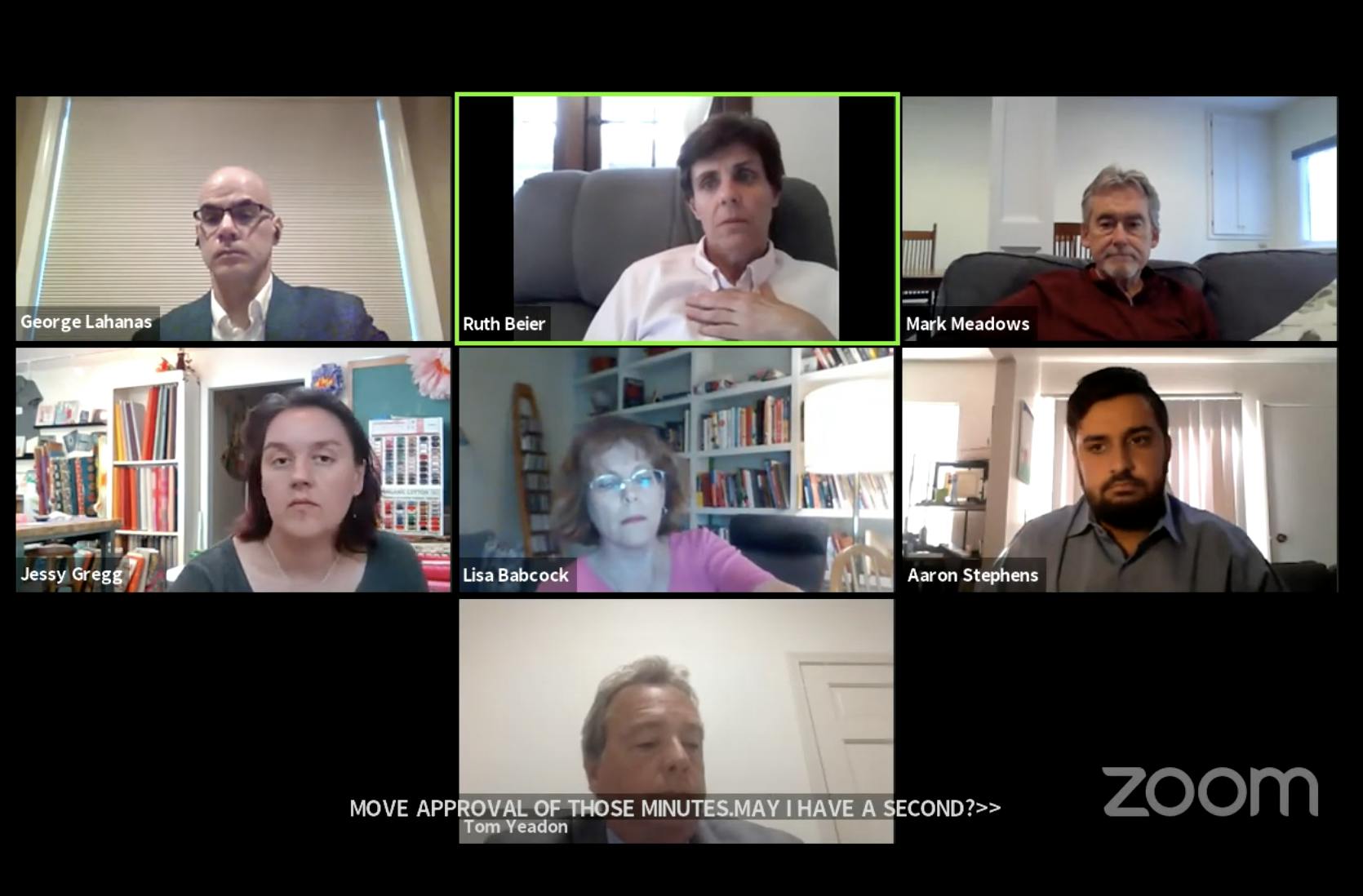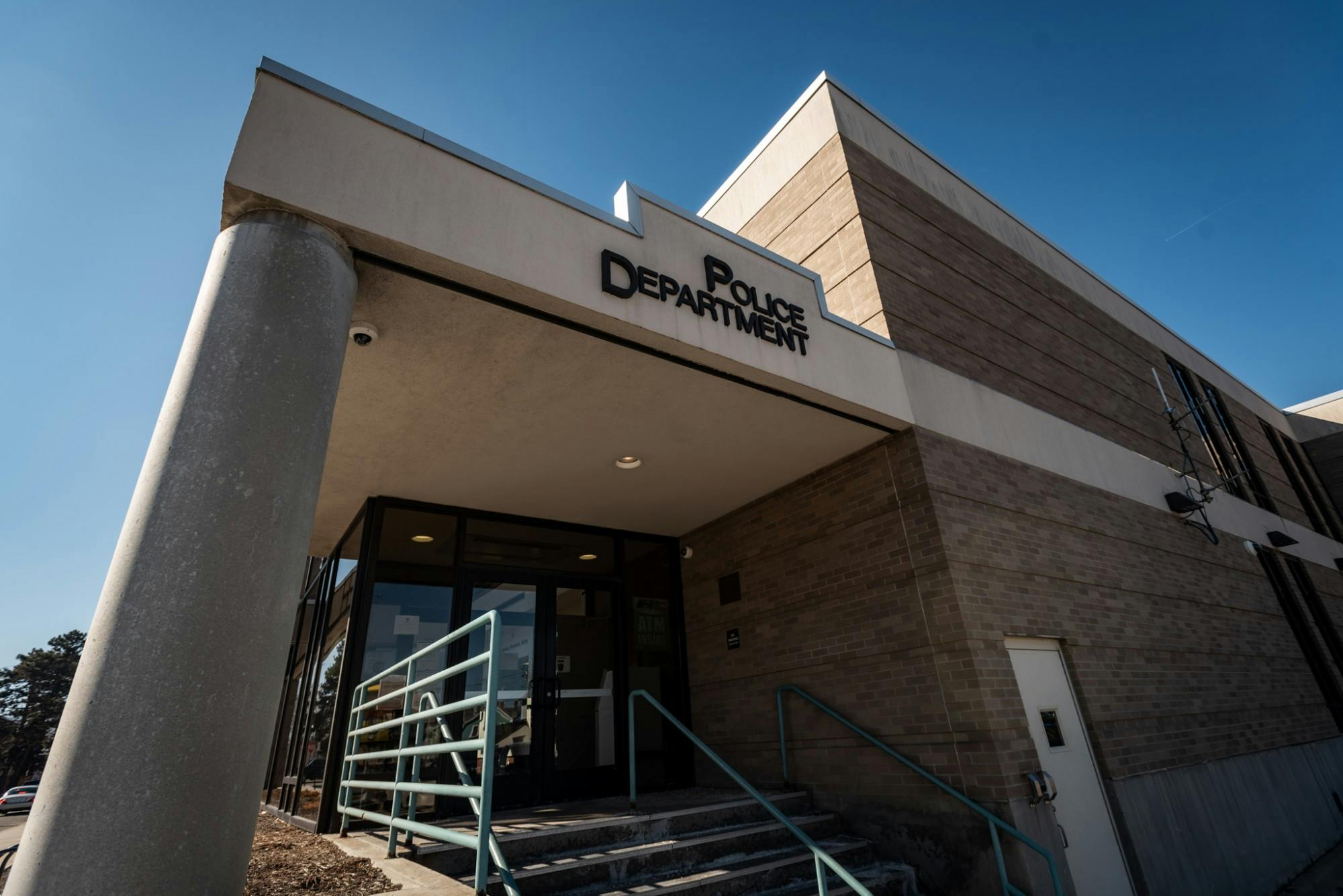East Lansing City Council approved a resolution to form a committee that will eventually create the East Lansing Independent Police Oversight Commission in a virtual meeting May 26.


East Lansing City Council approved a resolution to form a committee that will eventually create the East Lansing Independent Police Oversight Commission in a virtual meeting May 26.

"I see this as a first step in, or one step ... in improving the situation for minorities in East Lansing," Mayor Ruth Beier said. "And I want to make it really clear to our police department and our residents of all colors, I do not think that our city staff, including the police department, is any more influenced by racism than the general public in East Lansing."
Beier said when it comes to police, they have a lot more power than the average person.
"The idea here, in my ideal world, would be for the police to embrace this kind of oversight," Beier said. "So that when there is a complaint, people feel comfortable going to the commission."
The committee, originally titled Police Community Relations Committee but now titled Study Committee, will be used to research the relationship between the police and the community and make recommendations to the city council to implement an Independent Police Oversight Commission.
In the aftermath of a concluded investigation by Michigan State Police into two alleged incidents of excessive force within East Lansing Police Department, or ELPD, the committee has been at the forefront of public discussion.
The incidents investigated included a December traffic stop and arrest and an altercation and arrest at 7-Eleven in February.
State police closed the investigation early this month, finding the officer involved to be exonerated.
Upon the conclusion of the investigation, the city released the footage involved on May 13.
Specifics of committee members
The committee will be comprised of 11 voting members, including a non-voting city council member who will act as a liaison.
Specifically, committee members are defined as follows:
Additionally, the resolution said the committee should include "individuals from affected communities such as African Americans, Latinos, Muslims, and immigrants" to the greatest extent possible.
Community members may apply to serve on the Study Committee here.
Public comment highlights
Community members voiced concerns and provided comments for the council prior to the approval of this resolution.
Farhan Sheikh-Omar, a resident of the East Lansing area, said this system is not going to work because there are unanswered questions regarding the prevention of further incidents.
"This committee that is being created tonight is not a committee that is by the people and for the people," Sheikh-Omar said. "This is a committee that that's being created by the city council, elected officials and it's for city council members."
Support student media! Please consider donating to The State News and help fund the future of journalism.
Concerns also rose regarding the use of force techniques within ELPD, as well as the officer involved in the exonerated state police investigation.
Sheikh-Omar, as well as other community members, referenced the recent use-of-force incident which led to the death of a black man in Minneapolis.
The incident referenced is the death of George Floyd, who died as a result of an excessive use of force by a police officer during his arrest, according to CNN. Floyd's death resulted in the firing of the four police officers involved.
Sheikh-Omar said this incident was similar to the two incidents investigated by state police, which involved ELPD Officer Andrew Stephenson.
"Let's talk about George, what happened in Minneapolis," Sheikh-Omar said. "George is already on the ground but the police officer continues to put pressure into George's neck, the same thing that happened with Mr. Gasito, the same thing that happened to Mr. Anthony. It's a similar move that Stephenson does to black people."
City Manager George Lahanas said the techniques under question in the closed state police investigation have been discontinued and will be followed up with retraining within ELPD.
"The concern for us is the issue of head stabilization. There are accepted methods, and trained to and proven methods that we've employed for a long time under what is called Pressure Point Control Tactics," Interim Police Chief Steve Gonzalez said.
Gonzalez said there is a pressure point called the mandibular angle, located under the earlobe toward the back of the jawline, which is used by applying counterpressure to the other side of the head.
The head may be controlled if an individual tries to bite or use their head to harm an officer, Gonzalez said. However, ELPD officers have been directed to avoid using the head as a point of control for an individual's body.
"We don't want officers pinning a head to the ground or controlling the head next to the ground where, like we've seen, can result in injury," Gonzalez said.
Gonzalez said the tactic under question within the East Lansing department differs vastly from the tactic in the Minneapolis incident.
Pressure Point Control Tactics, or PPCT, allows for a tactic that may subdue an individual by placing a shin or knee on their shoulder blades, Gonzalez said. However, the inappropriate tactic used in the Minneapolis incident, where the officer pressed their knee into Floyd's neck for several minutes, is not approved under PPCT.
Community member Charles Grigsby said the intent behind the use of force techniques is what worries him.
"It's more than just a retraining," Grigsby said. "It's more than just showing someone a different way to subdue someone. It's really a philosophy and a belief in how you go about your job as a police officer in this city, as you go about your job as a police officer in this nation."
Grigsby also said he would not feel safe being pulled over by Officer Stephenson.
"If I'm driving my car right now to go into the grocery store to grab something for my family to eat and I have to get pulled over by Officer Stephenson, do you think I trust that interaction?" Grigsby said. "Do you think I believe that I'm safe? Do you think I feel that I'm in a situation where he has my best interest at heart? That's a question to me now based on actions, based on facts."
As explained by Beier in a prior interview, Stephenson has been reinstated as an ELPD officer. When ELPD sent the investigation to state police, the city gave power away. In turn, the exonerated disposition of the investigation will allow Stephenson to remain an officer.
"A very wise person said to me ... you can't just pass rules and expect everybody to follow them," Beier said. "You have to get people to embrace change, and this is a huge change. The idea that we're going to admit and address implicit bias or explicit bias and actually do something about it is scary for a lot of people. But, it has to happen."
In a letter sent to Beier by the Police Officers Association of Michigan a week before Tuesday's meeting, Business Agent for the association Kenneth Grabowski wrote, "By failing to appoint a member of the police departments mentioned in the Resolution, in both patrol and command units, the City Council shows an obvious disdain for our law enforcement officers, and an intentional lack of balance for the composite membership of the (Study Committee)."
Editor's Note: This article was updated at 2:25 p.m. to include a quote from the Police Officers Association of Michigan.
This article was updated at 4:57 p.m. to include an interview with Gonzalez and updated information on the committee and the committee's new title.